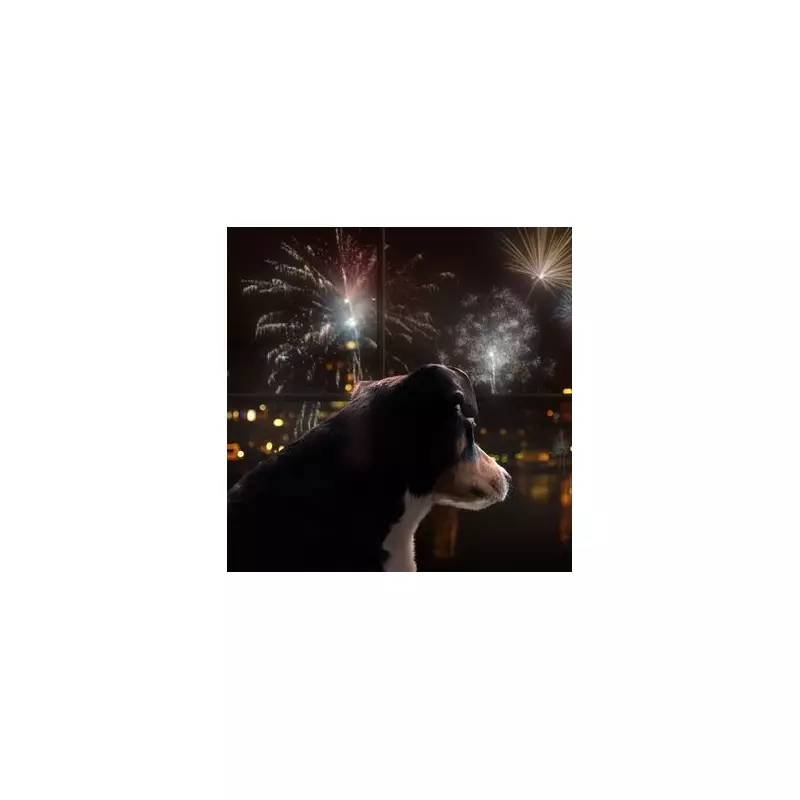
As the skies of Britain prepare to ignite with dazzling firework displays this Bonfire Night, millions of pet owners face the annual challenge of protecting their anxious companions from the explosive celebrations. The crackles, bangs, and whistles that delight humans can trigger sheer terror in our four-legged friends, but veterinary behaviourists confirm there are proven strategies to keep pets calm and secure.
Understanding the Fear Response
Dogs and cats experience the world through senses far more acute than our own. The sudden, unpredictable nature of fireworks creates what animal experts call "sensory overload" - triggering the same primal fear responses that kept their wild ancestors alive. "It's not just the noise," explains veterinary behaviourist Dr. Sarah Wilkinson. "The unusual smells, flashing lights, and even our own tense energy contribute to their distress."
10 Essential Strategies for a Peaceful Night
1. Create a Safe Haven Sanctuary
Transform a quiet room into a pet-safe retreat days before fireworks begin. Line the space with familiar bedding, include unwashed items carrying your scent, and consider using pheromone diffusers like Adaptil for dogs or Feliway for cats. These synthetic hormones mimic natural calming signals, providing chemical reassurance.
2. Master the Art of Sound Masking
Counter-intuitively, complete silence can heighten anxiety. Instead, use consistent ambient noise to mask firework sounds. Classical music, specially composed pet relaxation tracks, or even white noise machines effectively dampen sudden bangs. Research from the Scottish SPCA shows reggae and soft rock are particularly effective for canine stress reduction.
3. Timing is Everything: Walk and Feed Early
Ensure dogs are exercised and all pets are fed well before dusk falls. A tired, comfortably full animal is naturally more relaxed. For dogs, consider a late afternoon walk when daylight provides natural reassurance.
4. Blackout Your Home Fortress
Close all curtains and blinds before fireworks commence. This not muffles sound but eliminates the disorienting flash of lights that often precedes bangs, giving pets one less sensory trigger to process.
5. Behavioural Conditioning: The Positive Association Method
In the weeks leading up to November 5th, gradually expose pets to recorded firework sounds at low volume while engaging in positive activities like play or treat-giving. Slowly increase volume over multiple sessions, ensuring it never reaches stress levels.
6. Natural Calming Aids and Supplements
From calming collars infused with lavender and chamomile to veterinarian-recommended supplements containing L-theanine or casein protein, numerous natural options can take the edge off anxiety. Always consult your vet before introducing new supplements.
7. Maintain Normalcy: The Power of Routine
Animals thrive on predictability. As much as possible, stick to regular feeding times, walking schedules, and household routines. Your calm, business-as-usual demeanor signals that there's no reason for alarm.
8. Distraction Therapy Through Engagement
For mildly anxious pets, engaging games or puzzle feeders can provide mental diversion. The concentration required to extract treats from Kong toys or snuffle mats can override panic responses.
9. Never Punish Fear Responses
If your pet whines, trembles, or seeks hiding, respect their coping mechanisms. Punishing fear only compounds anxiety. Instead, offer quiet reassurance without excessive fuss that might reinforce nervous behaviour.
10. Microchip Security: Your Safety Net
Ensure microchip details are current and collars feature legible tags. More pets go missing on Bonfire Night than any other evening of the year. A frightened animal can bolt with surprising speed and determination.
When to Seek Professional Help
For pets with severe phobias that don't respond to basic interventions, consult your veterinarian about prescription anti-anxiety medications or referral to a certified animal behaviourist. "Modern veterinary medicine offers excellent pharmaceutical options for extreme cases," assures Dr. Wilkinson. "There's no shame in medical intervention for genuine suffering."
By implementing these expert strategies, British pet owners can transform what's traditionally been a night of terror for animals into just another evening of comfortable domestic life. The crackle of the fireplace needn't be overshadowed by the crackle of rockets when proper preparations are made.





